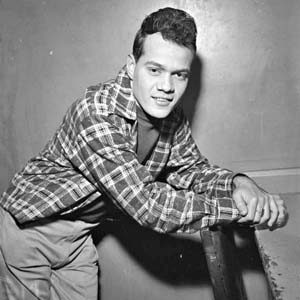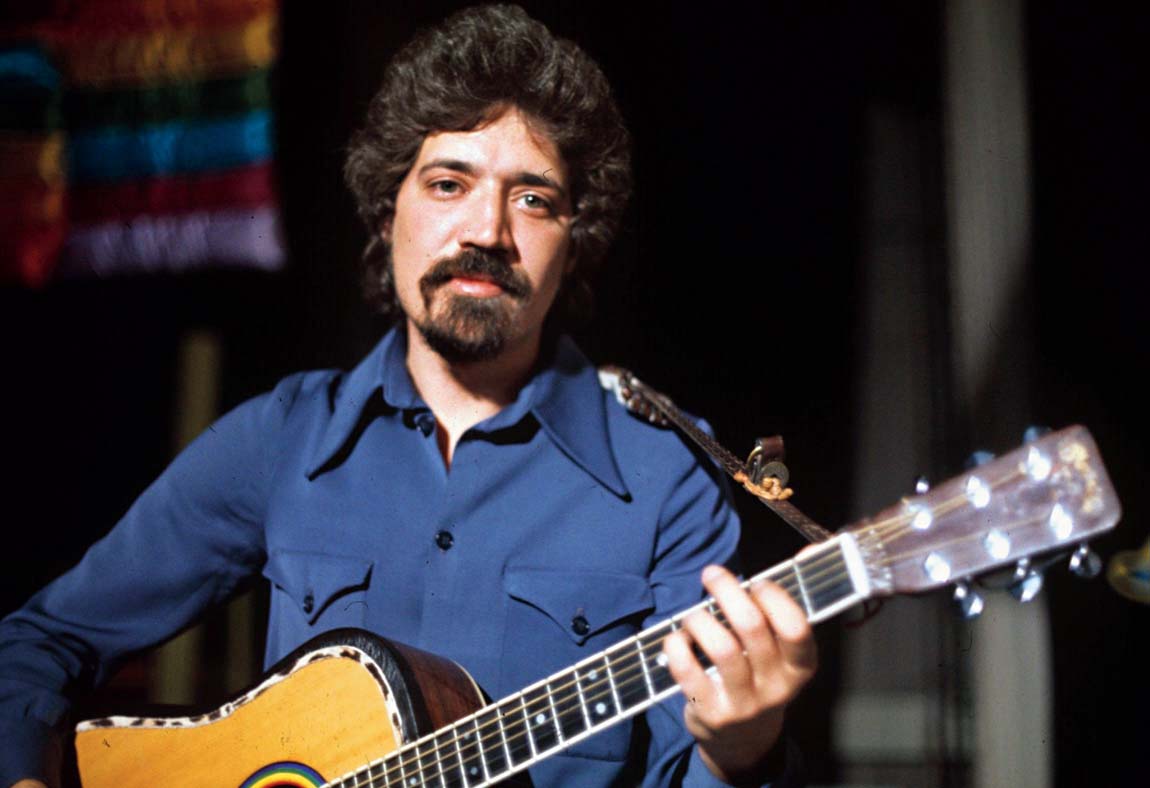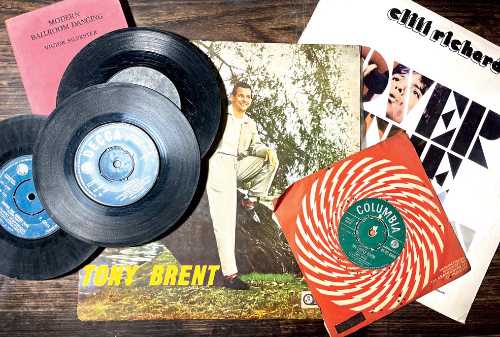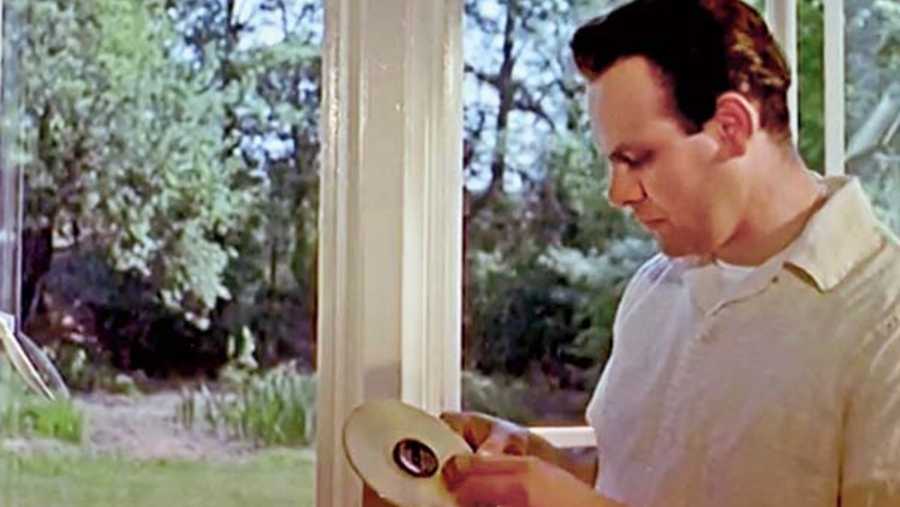The school I went to was very strict. I used to get the cane every morning,” Engelbert Humperdinck recalled sometime in the 1960s while talking about his life in Madras. At the same time, he admitted that he didn’t work hard enough and the one thing he was sure of is that singing was his calling, though for some time he had dedicated his attention to the saxophone.
Personally, my love for Humperdinck doesn’t stretch beyond Please Release Me, The Last Waltz and his album, Hello Out There but growing up in a house packed with LPs and 45rpms while the fondest lunchtime memories revolved around All India Radio shows, such as Lunch Time Variety and Musical Bandbox where the pop singer was almost a permanent fixture, it’s easy to root for one of pop’s perfect ambassadors.
Music connects in a unique way. A song — however good or, well, bad — can evoke a memory. And it’s the songs of Humperdinck, Cliff Richard, Tony Brent, Peter Sarstedt and Kal Kahn that remain with me through my vinyl collection. Another Sunday is here and another LP (or 10!) I will spin today, wallowing in the memories of by my grandfather’s pathetic singing but unforgettable taste in music, akin to the smell of hot coffee with warm buttered toast.

Bill Forbes also recorded as Kal Kahn and two of his most memorable numbers are Oh, To Be In England and Ladies of Calcutta

The late Peter Sarstedt spent a few years in Calcutta — the place he remembered “most” from his childhood in India. File picture
‘Bherry pretty’ ladies of Calcutta
For whatever reason, gramps and my father with equal gusto kept the house booming with a singer who’s probably forgotten but the phrase “ladies of Calcutta” lives on. The singer was Kal Kahn and he murdered the English language with two of his songs — Oh, To Be In England and Ladies of Calcutta.
English people sleeping in the sun to get a tan,
Pouring oil upon their faces like a frying pan,
Funny thing about it is they all go rosy red,
Next day when the peeling starts they’re crying in their beds...
With no place to run to or hide, there was little the kids in the house could do but join in the cacophony. Kal Kahn or Bill Forbes was born in Sri Lanka in the late 1930s and left for Britain in 1955. His dream was to become a singing sensation, a dream that came true with appearances at Bread Basket coffee bar.
At this point, another singer you may know about needs to be introduced — the man from Howrah’s Dobson Road, Cliff Richard. The Bachelor Boy singer spent a few years in Howrah before getting shipped to England. Richard was once a part of the Oh Boy! show, which provided competition to BBC’s 6.5 Special Teen Show. Besides Richard, Shirley Bassey, Marty Wilde and Billy Fury made appearances on the show. So did Bill Forbes.
Between 1959 and 1962 he released tracks regularly on Columbia Records. His biggest hit was Too Young, a song that made him a hero in Sri Lanka. Besides his appearances on Oh Boy!, Forbes was seen in Cool For Cats (1959, BBC) and Thank Your Lucky Stars (1961, ABC). For a few years, since 1963, he did the rounds of nightclubs and formed his band — The Contrasts. But he settled for a life outside showbiz in 1975.
The story doesn’t end there. Many moons ago, when blogging was taking off and I was at the centre of it, an Englishman responded to an email I had sent out. He said Kahn or Forbes lived in Huddersfield and provided a telephone number. Sadly, the telephone call didn’t mature. Yet, I am happy that he lives on in my house through 45rpms and I concur each time he calls the “ladies of Calcutta” “bherry bherry pretty”.
The Byculla boy
The record collection I am left with has also inspired me to reach out to another singer, who’s forgotten — Tony Brent. No, not Tony Bennett. This is Mr Brent, who was also a car enthusiast. For whatever reason, gramps slipped into Brent’s universe each time he had a bats-in-the-belfry day, playing songs like In My Little Room and Cindy, Oh Cindy. By the time I could manage to find out a bit about the singer, he had already passed away but a childhood dream was fulfilled to know the kind of person he was.
Tony Brent — the oldest son of Patrick Joseph and Irene Marian Bretagne — was born Reginald Hogan Bretagne on August 13, 1926. Much of the information I could gather was thanks to an email conversation I had years ago with Didco (UK) resident Pam Peisley, who, in turn, put me in touch with Karen Bretagne, Brent’s daughter, and grandson Cory Bretagne.
Brent started school at the age of five with one year at preparatory school in Bombay. At age six, he was enrolled in a boarding school in Doolali for nine years where he completed his Junior Cambridge followed by Senior Cambridge. Later, he went to a school in Nasik called Boys Town where he matriculated after two years. An ace at most subjects, he was also a champ when it came to football, cricket and his favourite, hockey.
In 1946, he met Noreen Crawford and after a lot of back and forth, they finally got together. Both ultimately left for the UK to live in Surrey. It was in England that Brent discovered his talent for singing. A talent scout from the BBC spotted him and arranged an audition with the Bert Ambrose Band. This was followed by radio broadcasts and a recording contract with Columbia Records.
He joined the BBC Showband in 1951 and took on the stage name Tony Brent. And believe it or not, of his 104 records, 29 made it to the hit parade.
In life, one thing leads to another and ultimately he moved to Australia. In 1996, Cory and Karen flew to India with Tony’s ashes, which were scattered in the Ganges.

Songs — good or bad — connect with the listener and evoke memories. Picture: The Telegraph
Peter Sarstedt & the Maidan
And my Sunday will end with Peter Sarstedt, a singer my father introduced me to three decades ago, saying that his lyrics evoke images. It does, and that too a new set each time the 1969 hit Where Do You Go to My Lovely is played; it’s a song that was used in the Wes Anderson films Hotel Chevalier and The Darjeeling Limited.
As part of my project to reach out to singers I grew up listening to, an email was delivered to Sarstedt in the early 2000s, who finally replied several weeks later. Born in Delhi, the 1969 winner of the Ivor Novello Award had spent a few years in Calcutta (went to school at Sherwood College, Nainital, and Victoria Boys’ School, Kurseong).
Calcutta was the place he remembered “most” from his childhood in India. “I was happy there. While I was there, India became Independent. I remember the terrible rioting to which we locked our doors and windows. And, looking back, I can recall injuring my head in a cycle accident in the Maidan,” he had told me over email. Yet, every day was “wonderful” because he and his brothers “flew kites, jumped into and out of trams and garries, played cricket in the park, cycled around, walked through the markets, went to the pictures.... We never knew politics.”
Sarstedt, who passed away in 2017, unknowingly shaped his taste in music during his time spent in the city. While his dad played the harmonica every night, his parents were ballroom dancers and members of the Rangers Club. “The backdrop to it all was the music of the street, a soundtrack as it were, all kinds of Indian music, religious, pop, classical, all mixed up together.” Finally, he moved to England in March 1954.
So the answer to “why I cling on to my record collection” is obvious even when music streaming is winning in a big way. I live in a house like a lot of other houses, in a neighbourhood like many other neighbourhoods and on a street like a lot of other streets. But after all these years, I am grateful to still be able to look back and enjoy the music of my childhood the way it was once played — on a turntable.











